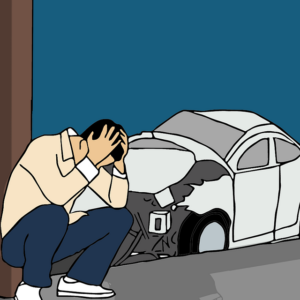 How to Calculate the Value of Your Car Accident Claim
How to Calculate the Value of Your Car Accident Claim
If you’ve been in a car accident and it wasn’t your fault, you might be wondering, “What’s my car accident lawsuit worth?”
This is an important question everyone thinks about, especially if you’re dealing with medical bills, lost wages, or vehicle repairs.
While every case is unique, there are key factors to consider when calculating what your car accident lawsuit is worth. Fortunately, our attorneys help you figure all of this out at no charge. And to keep you informed, here are some things we consider as we prepare your case.
Medical Expenses
The first step in calculating your claim is to determine the total cost of your medical treatment. This includes:
- Emergency room visits
- Doctor’s appointments
- Surgeries or procedures
- Physical therapy
- Prescription medications
- Medical equipment (like crutches or braces)
Even if you expect to recover fully, future medical expenses may also be a factor, especially if your injuries require long-term care or rehabilitation. We often speak with your doctors and other medical experts to get an understanding of your long-term expenses and any additional future costs.
 Lost Wages
Lost Wages
If your injuries caused you to miss work, you can include lost wages in your claim. To calculate this generally, multiply the amount of time you were unable to work by your regular pay rate.
If your injuries have impacted your ability to earn money in the future—whether through reduced hours or inability to return to the same job—you may also be entitled to compensation for “loss of earning capacity.” Our lawyers can help you determine the value of this loss based on your age, skills, and career prospects.
And lastly, if you end up needing to apply for Social Security Disability Insurance (SSDI), we can also help you prepare that application so you have the highest chance of success.
Property Damage
The cost of repairing or replacing your vehicle is another important part of your claim. In addition to vehicle repairs, you may also include the value of any personal property that was damaged in the accident, like a phone, laptop, or child car seat.
Keep all estimates, receipts, and invoices related to these repairs or replacements.
 Pain and Suffering
Pain and Suffering
Pain and suffering refer to the physical and emotional distress caused by the accident and your injuries. Unlike medical bills or lost wages, this part of your claim doesn’t have a set dollar amount and is more subjective.
Insurance companies often calculate pain and suffering using a multiplier. They take your total economic damages (like medical bills and lost wages) and multiply that amount by a number between 1.5 and 5, depending on the severity of your injuries.
But your pain doesn’t always match their impersonal math. Our experienced car accident lawyers can help you determine what is fair based on your specific case.
In addition to physical pain, emotional distress—including anxiety, depression, or PTSD—can also be a part of your claim. These damages may require a psychologist’s evaluation or a mental health professional’s testimony to support your case.
Other Considerations
We always keep in mind the state of the driver. If they were intoxicated, for example, you can assume they have a worse chance in front of a jury. That means you may have an upper hand in negotiations.
In addition, how everyone reacts and behaves after the accident can impact things as well. Photo evidence, witnesses, and more can make a difference. And you want to be careful not to apologize or make any statements in the heat of the moment that can impact your case.
To help you avoid mistakes and gather information after a car accident, we offer a checklist to keep in your glove compartment in case of a crash.
Also, other expenses related to the accident can add to the value of your claim. For example:
- Transportation to medical appointments
- Childcare if you’re unable to care for your children due to your injuries
- Home modifications if you need ramps or other accommodations after the accident
These can be harder to negotiate, and some attorneys ignore them completely. Keep a record of any costs you incur as a result of the accident, and make sure to work with an attorney who has a reputation for communication and personal attention.
 Fault and Tennessee’s Comparative Negligence Rule
Fault and Tennessee’s Comparative Negligence Rule
Tennessee follows a “modified comparative negligence” rule. This means your compensation can be reduced if you’re found partially at fault for the accident.
So for example, if you’re 20% at fault, your settlement may be reduced by 20%. If you’re more than 50% at fault, you may not be able to recover damages at all.
But finding fault can be subjective, so you need a lawyer who works to prove the other party was at fault or minimize the fault assigned to you.
Knowing When to Consult a Lawyer
You should consult with a lawyer for absolutely any accident claim. It’s extremely important and will likely make a huge difference. Remember, you’re going up against some of the biggest insurance companies in the world.
Calculating the value of a car accident claim isn’t always straightforward, especially when it involves serious injuries, multiple parties, or questions around fault. So to have any chance of success, you really need a personal injury lawyer on your side.
 Our Memphis car accident lawyers can help you:
Our Memphis car accident lawyers can help you:
- Gather evidence to support your claim
- Negotiate with insurance companies
- Make sure you don’t settle for less than you deserve
And we don’t get paid anything unless and until we win your case.
If you’ve been in an accident in Memphis, we can make all the difference in getting the compensation you need to recover and move forward.
If you’re wondering, “What is my car accident lawsuit worth?” or worried about the next steps, we can help. To get started with a free consultation, just contact us online today or call us at 901-327-2100.
